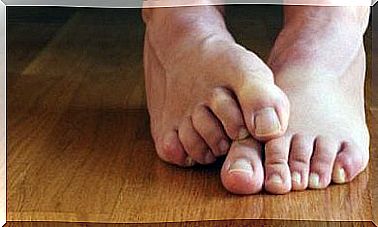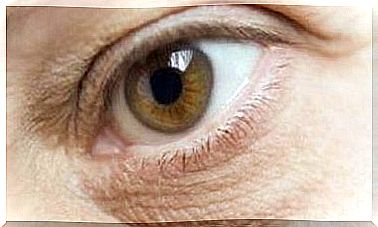Pericarditis: Symptoms, Causes And Treatments
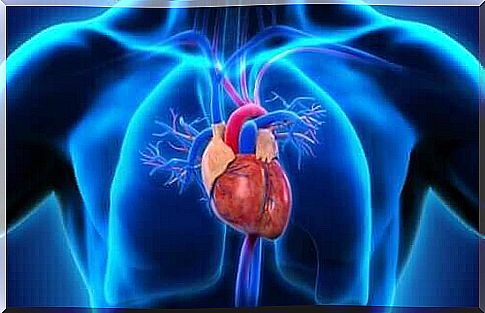
Pericarditis refers to inflammation of the pericardium, a sac-shaped membrane that surrounds the heart. This membrane has two layers and between them is a small amount of liquid. This is a lubricant to make the two layers slide back and forth.
If the volume of this fluid increases, pericarditis develops. This can clog the heart and affect its functioning. However, in most cases there are no major problems and it will go away on its own without treatment. However, it is important to know that in the most serious cases medication and in some rare cases even surgery is required.
Pericarditis mainly affects men between the ages of 20 and 50. There are cases that are impossible to treat and in these cases a surgeon removes the pericardium . It does not lead to serious consequences.
Types of Pericarditis
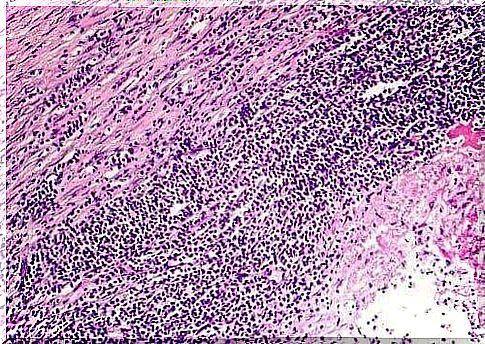
There are two types of pericarditis, namely acute and chronic. The features are as follows:
- Acute pericarditis starts suddenly. It lasts no longer than six weeks and often leads to pericardial effusion . The symptoms are similar to those of a heart attack. Only a small percentage of patients have a relapse.
- Chronic pericarditis develops as a result of a thickening of the pericardium or a build-up of fluid. It lasts more than six weeks and can lead to right ventricular failure. This is edema in the abdominal area, the pretibial area and around the ankles. Chronic pericarditis also develops when fibrous tissue forms around the heart, causing too much pressure in those veins that carry blood to the heart. Thus, the fluid stagnates in the pericardium and accumulates in other parts of the body.
Causes of Pericarditis
In about 80% of cases, it is impossible to determine the cause of pericarditis. However, it is common for the cause of the pericarditis to be the result of an infection.
In that case it is most likely a viral infection. It is less likely to be a bacterial infection, and very rarely is it due to a fungal infection.
Also, there are many cases where pericarditis occurs in combination with one of the following diseases :
- autoimmune diseases
- cancer, including leukemia
- AIDS
- renal insufficiency
- hypothyroidism
- tuberculosis
- rheumatic fever
In other cases, it is the direct result of a heart attack, heart surgery, but it can also be trauma to the chest. Sometimes pericarditis can be the result of inflammation of myocardium, radiation to the chest, or the use of certain medications.
Symptoms and Diagnosis
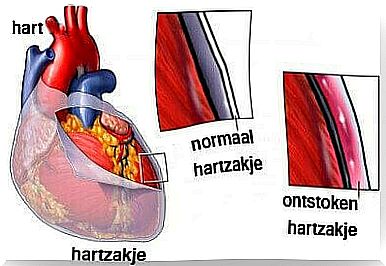
The typical symptom of acute pericarditis is very annoying. It feels like a stabbing pain on the left side of the chest, behind the sternum. However, some people experience only mild and constant pain. Other people report feeling pressure in the chest of varying intensity.
Often people also feel pain in their left shoulder and neck. The discomfort is usually more intense when they cough, take a deep breath, or go to sleep. It gets better if they sit up straight and lean forward a bit.
Chest pain is usually the predominant symptom in chronic pericarditis, but there may be other acute symptoms, such as:
- palpitations
- a slight fever
- cough
- swelling of the legs
- dizziness
- nausea
- weakness
- fatigue
Treatment of pericarditis
The milder cases of pericarditis usually resolve on their own. Once a doctor discovers pericarditis, he or she will likely prescribe a drug treatment. This usually consists of painkillers that can control the pain and reduce inflammation.
Doctors may also prescribe colchicine, as it reduces inflammation and prevents recurrent episodes. However, this medicine is not safe for people with liver or kidney disease or those on any other drug treatment.
Also, a doctor may prescribe corticosteroids if there is no response to the above medications. Also, if the pericarditis is due to a bacterial infection, the doctor will prescribe antibiotics.
In the most severe cases, especially if cardiac tamponade is suspected, the doctor may drain the fluid through a pericardiocentesis. However, a pericardiectomy or permanent removal of the pericardium is rarely necessary.
